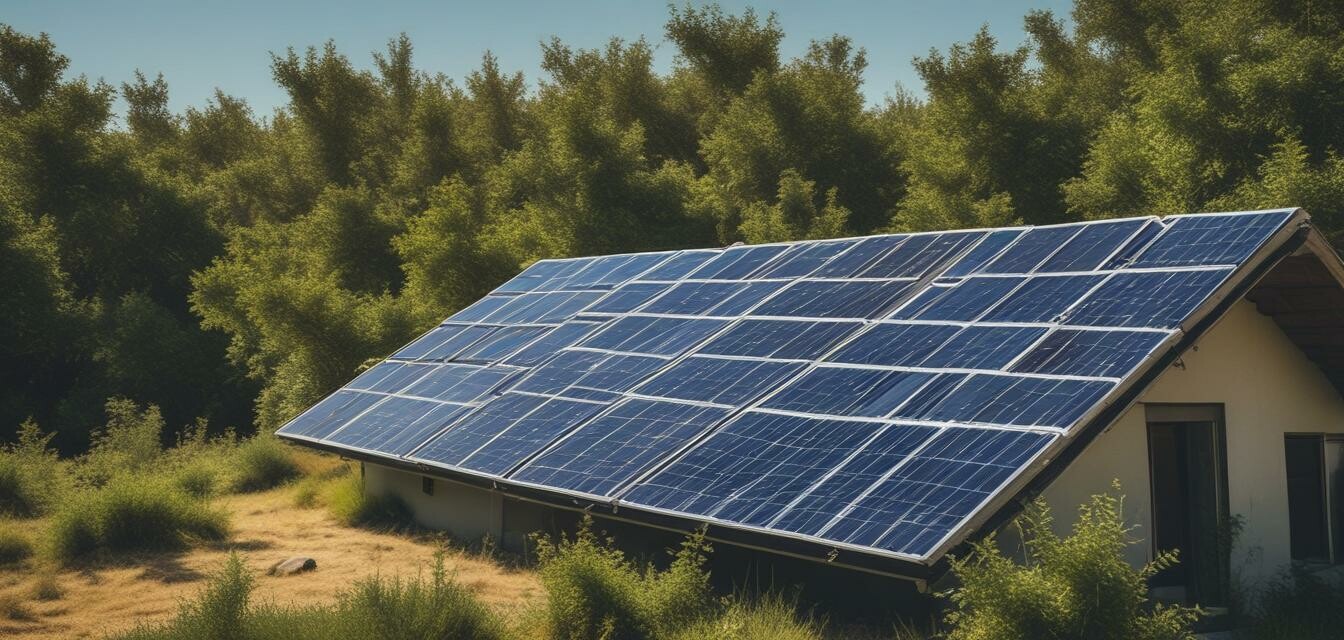
Best practices for maintaining your off-grid solar system
Key Takeaways
- Regular inspections are essential for optimal performance.
- Keep panels clean to maximize efficiency.
- Monitor battery health to ensure longevity.
- Understand your warranty for both panels and batteries.
- Plan for seasonal adjustments and maintenance.
As you embrace the freedom of an off-grid solar system, it's crucial to maintain it properly to ensure longevity and consistent performance. Regular maintenance practices not only extend the lifespan of your system but also enhance its efficiency. This guide will provide you with essential tips and best practices to keep your solar system in top shape.
Why maintenance is important
Just like any other system, an off-grid solar system requires regular maintenance to function effectively. Neglecting proper upkeep can lead to reduced efficiency, increased repair costs, and even system failures.
The benefits of regular maintenance
- Improved efficiency: Well-maintained systems perform better and produce more energy.
- Cost savings: Preventing small problems can avoid costly repairs down the line.
- Increased lifespan: Keeping your system in good shape extends its operational life.
- Better safety: Regular checks can prevent potential safety hazards.
Essential maintenance practices
1. Regular Inspection
Inspect your solar panels at least twice a year. Look for any signs of damage, such as cracks or loose connections. During these inspections, also check the wiring and mounts.
2. Cleaning the solar panels
Dust, dirt, and debris can accumulate on your solar panels, reducing their efficiency. Clean them regularly using a soft sponge or cloth with water. Avoid using harsh chemicals that may damage the panels.
3. Monitor battery health
If your system includes a battery storage component, regularly check its voltage and specific gravity (if applicable). Maintain proper water levels for flooded lead-acid batteries.
4. Understand warranties
Know the specifics of your solar system's warranties. Familiarize yourself with what is covered and for how long. This knowledge will be valuable if any components need replacement or repair.
Seasonal maintenance tasks
Different seasons may require specific maintenance tasks:
| Season | Maintenance Tasks |
|---|---|
| Winter | Clear snow off panels; check for ice build-up. |
| Spring | Inspect for winter damage; clean panels; check battery levels. |
| Summer | Inspect the cooling system (if applicable); ensure proper ventilation. |
| Fall | Clean the panels; check if foliage is obstructing sunlight. |
Professional maintenance vs. DIY
While some maintenance tasks can be done easily by homeowners, others may require professional intervention.
- DIY: Routine cleaning, battery checks, and basic inspections.
- Professional: Electrical checks, in-depth system evaluations, and repairs.
Using technology for monitoring
Many solar systems come with monitoring software that allows you to keep an eye on performance from anywhere. Utilize these tools to track energy production and detect issues early.
Conclusion
Maintaining your off-grid solar system is essential for maximizing efficiency and ensuring longevity. Implement these best practices to keep your system operating smoothly. For more insights into maintaining your energy independence, explore our resources on buying guides and news and trends.
Pros
- Extended system lifespan
- Optimized energy production
- Reduced risk of costly repairs
- Enhanced safety and reliability
Cons
- Time investment required for regular checks
- Potential cost of professional maintenance
- Need for specific cleaning tools
Tips for beginners
- Start with a basic understanding of your system's components.
- Document and schedule your maintenance tasks.
- Stay informed about new technologies and upgrades.



